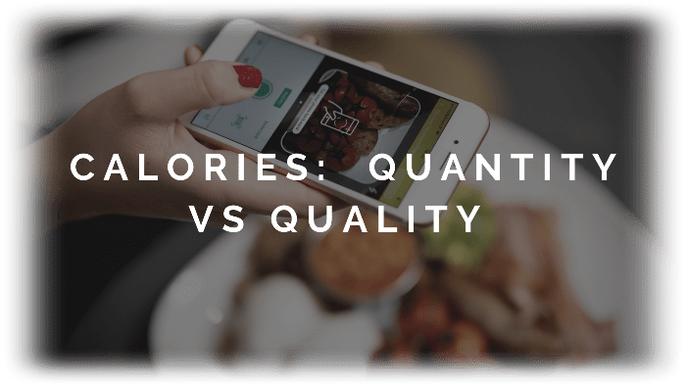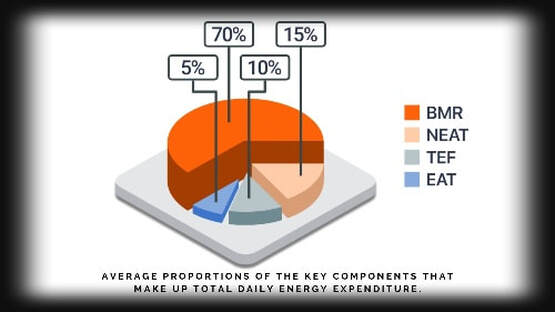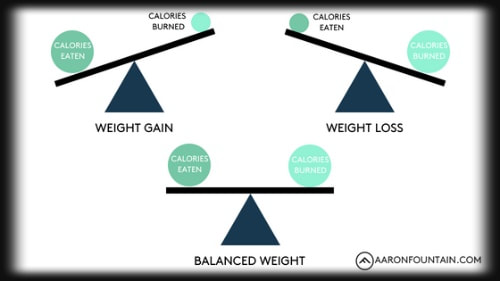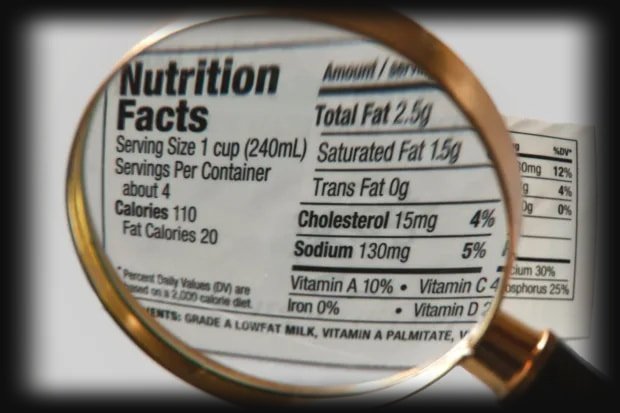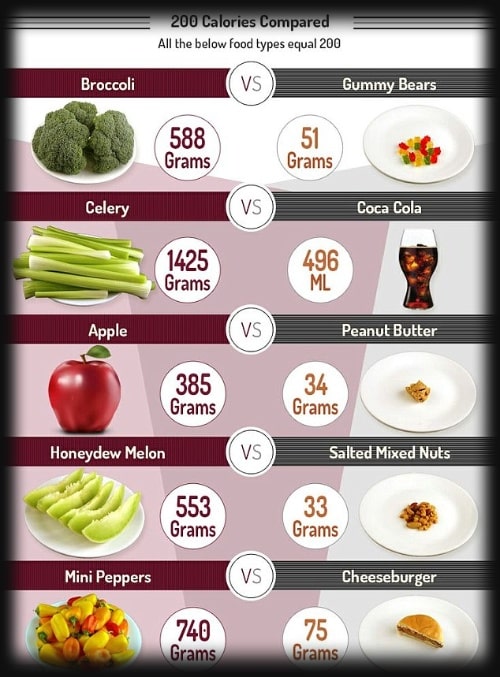|
In todays modern era calories have been under scrupulous attention. Severe calorific restriction diets are still practiced to this day, with the number of calories we consume often brought to the forefront when it comes to weight loss. With so many calorie adjustment approaches now adopted, it begs the question, are the food sources from which we derive those calories actually more significant than the amount we intake? There’s definitely a discussion to be had there. In this I’m going to delve into the issues of focusing explicitly on calorie quantity, before outlining the significance of calorie quality. ENERGY BALANCELet's begin with the fundamentals. Our energy balance is simply the difference between the number of calories we intake via our food, and the number of calories we expend through several means, on a daily basis. The number of calories we expend, otherwise known as TDEE (Total Daily Energy Expenditure), is comprised of a few factors: TDEE = BMR + TEF + EAT + NEAT Basal Metabolic Rate (BMR): the number of calories your body burns just to function while at rest. Thermic Effect of Food (TEF): the number of calories it takes for your body to digest the food you consume. Exercise Activity Thermogenesis (EAT): the calories you burn through exercise. Non-Exercise Activity Thermogenesis (NEAT): the calories you burn through physical activity that isn’t exercise - standing, walking, gardening, doing the dishes. Each of those components accounts for a proportion of the calories we consume. BMR typically accounts for 60-70% of our calorie expenditure, TEF for about 6-12%, EAT anywhere from 10-30%, and NEAT anywheres from 5-30%. It’s important to recognise that the proportions of these aren’t fixed & are manipulated by the decisions we make. If we increase our muscle mass & our overall bodyweight, our BMR is going to increase. If we consume foods that require more energy to break down, our TEF rises. If we opt to be more active throughout they day, our NEAT can be increased. These aren’t static figures, but are instead manipulatable percentages, which also respond to adjustments to our calorie intake. WEIGHT LOSS/GAINUnderstandably, calories have often been front & center when it comes to approaches to weight loss. This comes down to the logic behind energy balance. When we consume more calories than we expend, we’re operating in a positive energy balance (calorie surplus). The result of this, weight gain. On the flip side, if we are expending more calories than we’re consuming, we’re operating in a negative energy balance (calorie deficit), thus weight is lost. This is a very simplified approach to weight loss/gain. Although its principles do hold true, it is not the full picture; there are other key factors also at play when it comes to changing our body composition - but that’s for another time. So, to adjust our body weight we need to manipulate our energy balance favourably. Surely the simplest way to do that is to maintain strict control over calorie intake, whilst raising our expenditure to a level above that. Sure, that’s one way of doing it. But is it the most effective? Is taking a quantitative approach the most beneficial, sustainable & healthiest way of achieving, for instance, weight loss? Calorie Counting - The Quantitative ApproachIn recent years, the meticulous tracking & restriction of calorie intake has seen growing popularity. We see all sorts of dietary approaches centered around limiting the number of calories you consume as a means to induce weight loss. Logically, of course this makes sense. But, a few issues present themselves when tracking & restricting calorie intake. Firstly, there's the issue of sustainability & adherence. Whilst imposing calorie restrictions can be the strict guidelines that certain people need, for others, this loss of freedom can be almost torturous & can lead to distress, potentially counter-acting any benefits of the intake limitations. Ultimately, for success to be achieved the measures taken ought to be sustainable, to ensure long-term adherence. The second issue of calorie counting comes from an accuracy standpoint. Firstly, most of us are unable to calculate our TDEE with pinpoint accuracy due to the machinery & laboratory conditions it requires. So we don't truly know how many calories we need to operate in a deficit or surplus. We can however use calculation methods that provide an ok estimate. User error plays a big role in calorie counting. Learning how to effectively measure & weigh your food portions can be challenging for some. Miscalculations can lead to misconstrued portion sizes & therefore impaired results. Finally, there's also the issue of food labels themselves. For many products, labels are often inaccurate - sometimes by up to 10-15%. This could mean that whilst you think you’re consuming 700 calories, you’re really consuming closer to 800. Those extra calories, compounded over several meals, will likely be the difference between a deficit & a surplus. Whilst accuracy is never going to be pinpoint, with practice you can still begin to develop an understanding of your body & the calorie intake required to operate in a surplus or deficit. The third issue with an emphasis on calorie quantity, is that it often comes at the expense of calorie quality. For instance, say you were attempting to limit yourself to 2000 calories per day, you could choose derive all 2000 from McDonalds if you chose to. But, clearly that would not be beneficial for health. So, calorie counting, at least at first, is really just a wild guess. What's more, it can lead to the neglect of the quality of food consumed. With that said, there’s no denying counting calories can be highly effective for some individuals. Its regimented nature can often provide the structure that some people require to be on top of their calorie intake. WHY FOCUS ON CALORIE QUALITY?If all that matters for weight loss is energy balance, is it even necessary to consider the quality of the calories we consume? The answer, in my opinion, is unequivocally yes. When it comes to weight loss, focusing on quality can often lead to success. There’s several reasons behind this. Firstly, consuming foods of a higher quality essentially allows for a bigger buffer - you can eat more (up to a point). This is because foods that are minimally processed & higher quality tend to a) Contain more fibre & b) Require more energy to digest. A) High Quality Food contains more Fibre Fibres are important. They’re complex carbohydrates, containing 4 calories per gram. But, a significant proportion of fibre is non-digestible. This means that some of the calories you take in will go straight through the body. For instance, let’s compare 1000 calories worth of marzipan, alongside 1000 calories worth of broccoli. Marzipan, being a highly processed food, contains little to no fibre. Within those 1000 calories worth of marzipan, there’s roughly 6-7g of fibre. Let’s go with 7g; that would mean that 28 calories (7x4) are non-digestible. More or less all 1000 calories are taken into the body - 972 calories to be precise. Meanwhile, broccoli has around 76g of fibre per 1000 calories - more than 10x the amount. That equates to 304 calories worth of fibre - only 696 calories are actually taken into the body. 1000 calories of broccoli is also going to be a lot more filling & require you to eat a lot more (grams-wise) than marzipan. Vegetables are very calorie-sparse, yet so good for you. So eat more veg kids. B) High quality foods require more energy to digest - higher TEF. Simple, processed foods require little energy usage by the body to be broken down & metabolized. Meanwhile, complex, whole food products require more energy - they have a higher thermic effect of food. This again means that you can theoretically consume more of the complex, whole food products, as more calories are being burned during the actual break down of the food. Comparing macronutrient sources, protein is believed to have a greater TEF & to be more than satiating than both fat & carbohydrate. So, not only do higher quality foods use more energy being digested, but they're also typically more filling on a per-calorie basis. NUTRITIONCalorie-centric arguments aren’t the only valid reasons to focus on food quality. There’s also nutritional content, which has big implications on how our body functions. Vitamins & minerals are essential to optimal functioning, and are found in considerably greater quantities in high quality, organic & whole foods. Our immune health, skin, mood, & energy levels are all dependent on the vitamins & minerals we derive from our food. These factors dictate not only our overall well-being, but also affect other aspects of our lifestyle, including exercise behaviours & our levels of stress - both of which play important roles in weight management. Opt to focus solely on calorie quantity at the expense of quality, leads to the sacrifice of overall health. If health's compromised as an outcome, does it make sense doing it in the first place? WHAT MATTERS MORE?A near impossible question to answer definitively. Both matter. Without being in a calorie deficit, you can’t expect to lose weight. The physics of energy balance are irrefutable.
But, by valuing the quality of the food we consume, we’re able to consume more of it, provide our body with the necessary nutritional content for optimal functioning, & are likely to feel better as a result of that. By emphasizing the quality of food we consume, weight loss is often a natural by-product. Reality is, we don't need to pick one or the other - we can manipulate both to our benefit. Personally, if I had to emphasize one, it would be quality. Health ought to be our primary concern & too much of an emphasis on quantity can lead to its neglect. But, that's not to say that I completely disregard quantity. Even if we eat too much of 'the right food' we'll put on weight. So, whilst it's not entirely necessary, if you feel that the structure that calorie counting provides is something that you’d benefit from, or if you're looking to fine-tune results, then by all means do it. Simply do your best to minimize the inaccuracies where you can. But, it's vital to not be overly fixated on quantity at the expense of quality. It's more than possible to keep tight control over your calorie intake whilst still valuing the quality of the calories you're consuming. |
Author
Christian Lawal Personal Training.
Personal training in Tunbridge Wells, Tonbridge & Sevenoaks. Archives
January 2024
|
